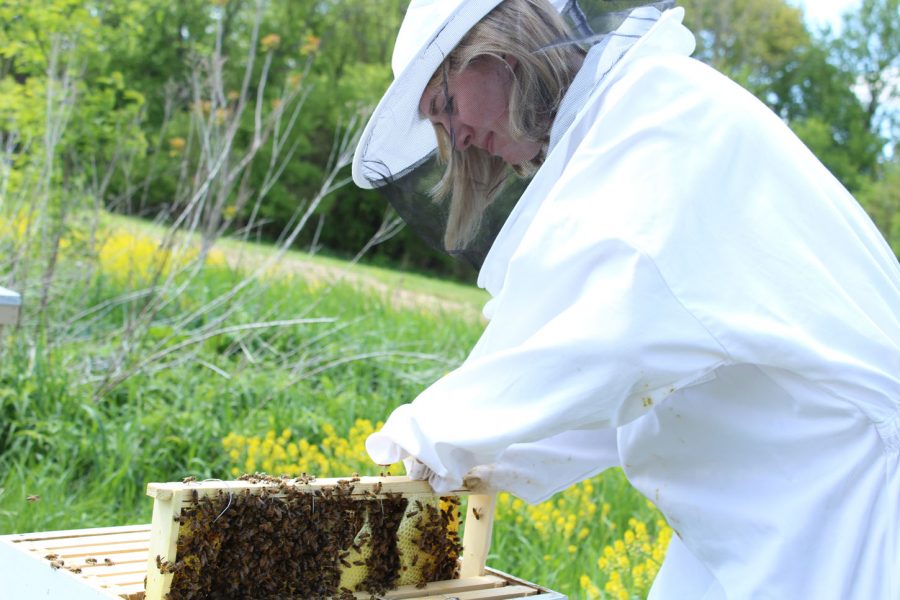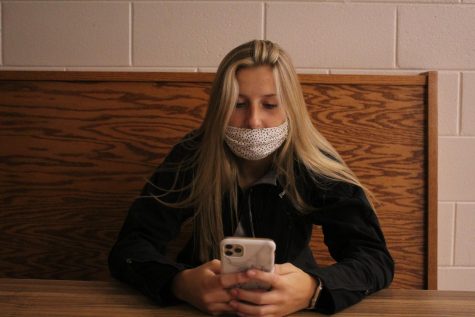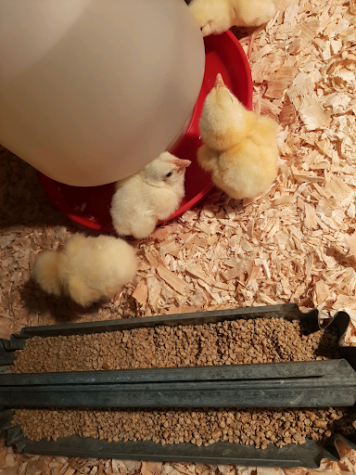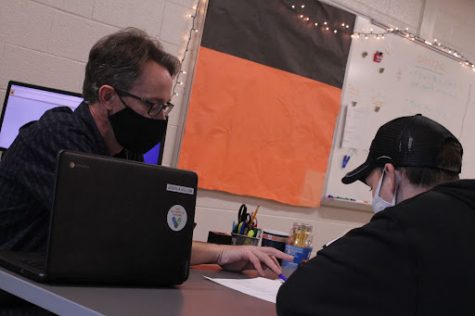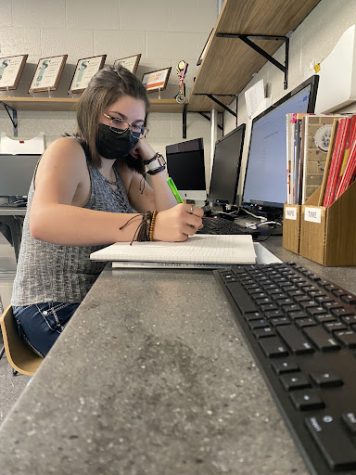Honey, we have a bee problem
It is a beautiful spring day. Children are enjoying the outdoors. They are playing catch by the garden when they notice something yellow and fuzzy flying around. This is a honey bee. The role of this bee is to pollinate flowers. By doing so, it is estimated by the Mother Nature Network that these bees help produce about 80 percent of our flowering crops.
Imagine if all of those little, fuzzy, yellow creatures suddenly disappeared one day.
If honey bees did not exist there would be no apples, broccoli, strawberries, nuts, cabbage, potatoes, onions, kiwifruits, papayas or blueberries. It could also threaten the dairy and beef industries.
This is just a short list of the many foods that we would not have if bees did not exist in our world.
As reported by the Food and Agricultural Organization, between 2007 and 2013, more than 10 million bee hives were lost. Bees are quickly dying off, resulting in various organizations trying to prevent this, not only to save our farms, but our flowers and food as well.
Honey bees are disappearing due to the use of neonicotinoids, a group of chemicals widely used in agriculture that are harmful to bees and cause death in mass amounts.
There are over 150 chemicals and pesticides that kill the world’s bees.
Some of the chemicals in this group are acetamiprid, clothianidin, nitenpyram and the most common culprit: imidacloprid.
These chemicals damage the nervous systems of bees, causing a loss of flight or even death.
Honey bees perform about 80 percent of the world’s pollination according to Green Peace, an independent organization that campaigns to keep the world clean and healthy.
Sophomore Camille Ford said, “I think they are important to keep our ecosystem alive and to pollinate flowers.”
According to Green Peace, another reason bees are dying off is habitat loss. Green Peace reports that since 1962, the number of bee colonies per hectare has declined by 90 percent, and bees can not be sustained unless we make a change.
To save the bees, we must all work on a few good habits, such as banning the seven most dangerous pesticides, restoring the ecological agriculture and preserving our wildlife’s habitat, Green Peace reports.
According to One Green Planet, bees are the most hard working creatures on the planet.
One Green Planet, an online campaign to keep the world healthy and green, also reports that bees are responsible for one third of the food we eat, one sixth of flowering plants and approximately 400 different types of agricultural plants.
Researchers call the issue of bees dying off Colony Collapse Disorder. In October of 2006, beekeepers reported bees drastically dying off between 30 percent and 60 percent. Colony Collapse Disorder is also apparent in countries such as France, Belgium, Greece, Spain and Portugal.
“Bees are important because without them we would lose up to 75 percent of our fruits and vegetables,” science teacher Diane Brooks said. “Bees are the only insect that pollinates crops for us, and they are dying from the pesticides and chemicals that humans spray on them. So, once again, human activity is harming this planet.”
If this issue is left unresolved, humans will lose valuable food sources.
However, there is a new diet beekeepers use to keep their colonies alive called Megabee. Researchers from the United States Department of Agriculture (USDA) say that the supplemental nutrients in Megabee will help the bees stay healthy and prevent them from dying. In addition, it is recommended that beekeepers feed their bees more protein-based nutrients. The USDA recognizes that honey bees are a critical link in agricultural production in our country. Honey bees add at least $15 billion to the value of agriculture in the United States. Despite this, the USDA reports that honey bees are put under serious pressures from multiple stresses that result in many beekeepers losing more and more colonies.
Colony Collapse Disorder is not the only thing causing bees to die. Four different reasons, including parasites and pests, pathogens, poor nutrition and exposure to pesticides and chemicals, also contribute.
“Bees, of course, help pollinate plants and lots of our food crops,” science teacher Jeff Trapp said. “We rely on bees for honey, food and, of course, the beautiful flowers. Bee products including honey can be very helpful for us. Eating locally made honey can help with allergies. Honey is one of life’s all natural sweeteners. However, we need bees to have honey, and the bees are disappearing mainly due to humans spraying chemicals and pesticides on our crops and gardens. To help save the bees, humans need to provide habitat for the bees, eat locally, eat organically and stop spraying pesticides and chemicals on our foods.”



